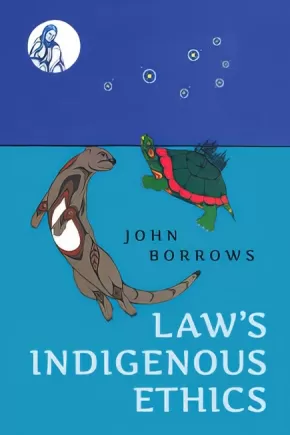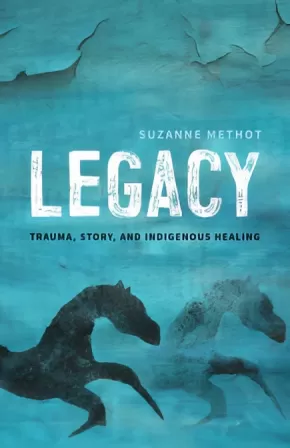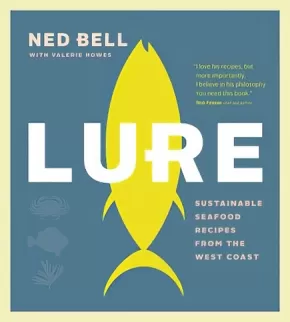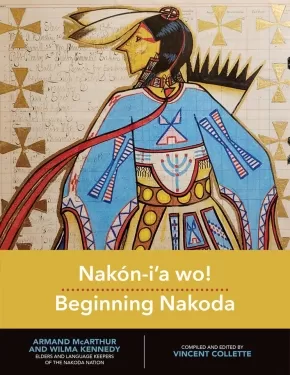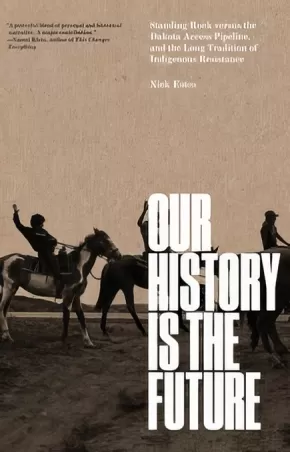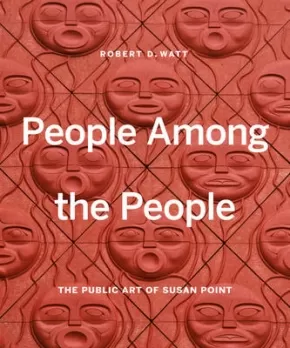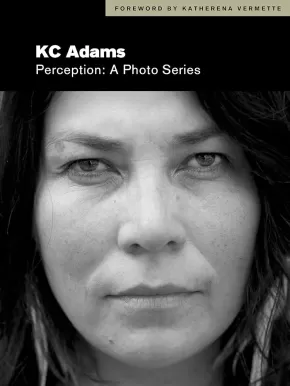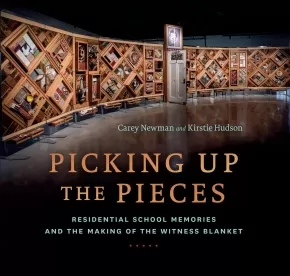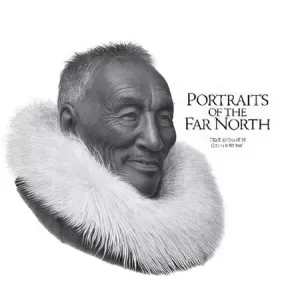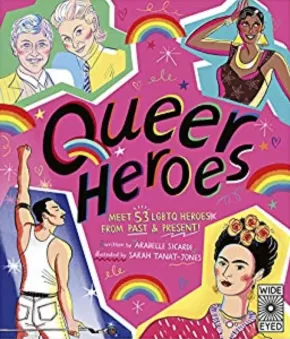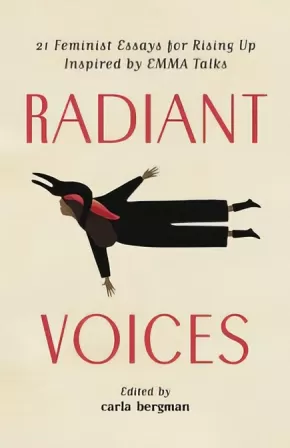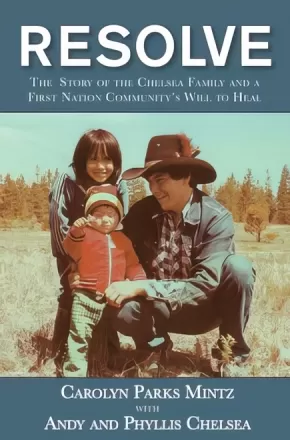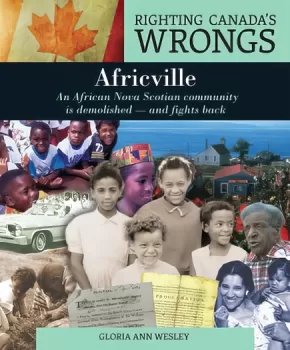
Non-Fiction
376
-
390
of
748 Results;
Sort By
Go To
of 50
Lac Pelletier: My Métis Home
$20.00
Text Content Territories:
Indigenous Canadian; Métis;
ISBN / Barcode: 978-1-926795-91-1
Synopsis:
Synopsis:
Gabriel Dumont Institute Press is honoured to publish Cecile Blanke’s Lac Pelletier: My Métis Home. A prominent Métis Elder living in Swift Current, Saskatchewan, but with deep roots in nearby Lac Pelletier, Cecile has been a tireless presence on the Métis and larger cultural scene in southwest Saskatchewan for many years. The history of the southwest Saskatchewan Métis is not widely known, and this book contributes significantly to our knowledge of this community. With her vivid memories of Lac Pelletier’s local families and traditions, we are left with an enduring portrait of a caring Métis community which maintained close family ties and lived in harmony with Lac Pelletier’s flora and fauna. Cecile also chronicles the racism that the local Métis often faced and discussed how colonization made her and others question their Métis identity. With time and perspective, she overcame this self-hatred and became proud of her Métis heritage, becoming its biggest promoter in her region of Saskatchewan.
Educator Information
Recommended by Gabriel Dumont Institute for these grade levels: Secondary/Post-Secondary/Adult
Law's Indigenous Ethics
$47.95
Format:
Paperback
Text Content Territories:
Indigenous Canadian; First Nations; Anishinaabeg;
Grade Levels: 12; University/College;
ISBN / Barcode: 9781487523558
Synopsis:
Synopsis:
Law’s Indigenous Ethics examines the revitalization of Indigenous peoples’ relationship to their own laws and, in so doing, attempts to enrich Canadian constitutional law more generally. Organized around the seven Anishinaabe grandmother and grandfather teachings of love, truth, bravery, humility, wisdom, honesty, and respect, this book explores ethics in relation to Aboriginal issues including title, treaties, legal education, and residential schools.
With characteristic depth and sensitivity, John Borrows brings insights drawn from philosophy, law, and political science to bear on some of the most pressing issues that arise in contemplating the interaction between Canadian state law and Indigenous legal traditions. In the course of a wide-ranging but accessible inquiry, he discusses such topics as Indigenous agency, self-determination, legal pluralism, and power. In its use of Anishinaabe stories and methodologies drawn from the emerging field of Indigenous studies, Law’s Indigenous Ethics makes a significant contribution to scholarly debate and is an essential resource for readers seeking a deeper understanding of Indigenous rights, societies, and cultures.
Reviews
"Law’s Indigenous Ethics addresses very controversial topics in Canada, not just in Indigenous legal studies, but far beyond that. John Borrows employs story work methodology, along with thorough legal research, ensuring that his work is truly leading edge. Law’s Indigenous Ethics will further advance Indigenous studies in Canada and beyond. Borrows’s work moves beyond the binary, divisive, and linear ideologies dominating the Indigenous intellectual landscape in Canada. He provides nuance, complicates dominate narratives, and gives the reader much food for thought and, more importantly, asks the reader to think, reflect, and embrace the principles embedded in the seven grandmother and grandfather teachings as a whole." -Deborah McGregor, Osgoode Hall Law School, Canada Research Chair in Indigenous Environmental Justice, York University
"Law’s Indigenous Ethics is extremely novel, important, and has the potential for great influence. Demonstrating tremendous expertise and fluency with its subjects, John Borrows’s arguments are sound and thoughtful, providing a number of important insights that lead me to adjust the way I think about issues that are very familiar to me." -Bethany Berger, Wallace Stevens Professor of Law, University of Connecticut
Additional Information
400 pages | 6.00" x 9.00"
Legacy: Trauma, Story, and Indigenous Healing
$24.95
Format:
Paperback
Text Content Territories:
Indigenous Canadian;
Grade Levels: 12; University/College;
ISBN / Barcode: 9781770414259
Synopsis:
Synopsis:
Exploring intergenerational trauma in Indigenous communities — and strategies for healing — with provocative prose and an empathetic approach
Indigenous peoples have shockingly higher rates of addiction, depression, diabetes, and other chronic health conditions than other North Americans. According to the Aboriginal Healing Foundation, these are a result of intergenerational trauma: the unresolved terror, anger, fear, and grief created in Indigenous communities by the painful experiences of colonialism, passed down from generation to generation.
How are we to turn this desperate tide? With passionate argumentation and chillingly clear prose, author and educator Suzanne Methot uses her own and others’ stories to trace the roots of colonial trauma and the mechanisms by which trauma has become intergenerational, and she explores the Indigenous ways of knowing that can lead us toward change.
Reviews
“This book is accessible, relatable, and full of storytelling about real people. It deeply resonates with me as a traditional counsellor, educator, and Indigenous person. Suzanne Methot, a brave Nehiyaw writer and community helper, takes up the challenges of logically explaining a child’s traumatized brain and body and how these impacts continue into adulthood. Methot also explores Indigenous health-care models, proving that Indigenous values provide solutions. This book uncovers the critical need for legislation that moves from creating ‘a renewed relationship’ with Indigenous peoples to creating real structural change.” — Dr. Cyndy Baskin, Mi’kmaq Nation, Associate Professor, School of Social Work, Ryerson University
Educator Information
A version of this work for young adults is available here: Killing the Wittigo: Indigenous Culture-Based Approaches to Waking Up, Taking Action, and Doing the Work of Healing
Additional Information
368 pages | 5.50" x 8.50"
Lure: Sustainable Seafood Recipes from the West Coast
$29.99
Format:
Paperback
ISBN / Barcode: 9781773270876
Synopsis:
Synopsis:
Eating sustainable seafood is about opening your mind (and fridge) to a vast array of fish and shellfish that you might not have considered before - and the Pacific Coast is blessed with an abundance of wild species. With Lure, readers embark on a wild Pacific adventure and discover the benefits of healthy oils and rich nutrients that seafood delivers. This stunning cookbook, authored by chef and seafood advocate Ned Bell, features simple techniques and straightforward sustainability guidelines around Pacific species as well as 80 delicious recipes to make at home. You'll find tacos, fish burgers, chowders, and sandwiches- the types of dishes that fill bellies, soothe souls and get happy dinner table conversation flowing on a weekday night - as well as elegant (albeit still simple-to-execute) dinner party options, such as crudo, ceviche, and caviar butter.
Reviews
“Ned’s first cookbook Lure features a set of sustainable seafood recipes that are accessible, well considered and, most importantly, delicious.” – Michael Cimarusti, Michelin-starred chef of Providence
“Ned Bell is one of that laudable cadre of young chefs who has taken the trouble to learn not only the names of his farmers but also his fishers. If, like me, you’re committed to sustaining the health of the oceans, you’ll grab this book that shows you how to cook all the responsibly-harvested gifts of the sea.” – Tom Douglas, American executive chef, restaurateur, author, and radio talk show host.
“I’m going to go out on a limb and suggest that Lure is the most important cookbook of the year, if not the decade.” – Tim Pawsey, Hired Belly
“Lure is at once a cookbook, coffee table showpiece, and educational manual. With straightforward recipes and a digestible approach to ocean sustainability, Lure is a beautiful and accessible guide for the conscientious cook.” – NUVO Magazine
“It should come as no surprise that Lure, his first cookbook, co-written with ace writer Valerie Howes, is just wonderful too. It’s a beauty of book—bright, full of gorgeous imagery and laid out in an attractive easy-to-understand style” – BC Living
Additional Information
304 pages | 9.14" x 9.99"
Nakón-i'a wo! Beginning Nakoda
$34.95
Editors:
Format:
Coil Bound
Text Content Territories:
Indigenous Canadian; First Nations; Assiniboine (Nakoda Oyadebi);
ISBN / Barcode: 9780889776623
Synopsis:
Synopsis:
Nakón-i'a wo! Beginning Nakoda is a language resource designed to help revitalize and document Nakoda, now spoken in Manitoba and Saskatchewan.
Written for beginning learners of Nakoda (also known as Assiniboine), this workbook, arranged thematically, provides a Nakoda/English lexicon, a vocabulary, a table of kinship terms, a glossary of linguistic terminology, and exercises to do after each lesson.
This book was made possible with the assistance of Elders and Language Keepers of the Nakoda Nation: Armand McArthur and Wilma Kennedy, Main Consultants; with additional contributions by Pete Bigstone, Leona Kroscamp, Freda O'Watch, and Ken Armstrong.
Educator & Series Information
Recommended for Grades 7+
Part of the Indigenous Languages for Beginners series.
Additional Information
304 pages | 8.50" x 11.00" | Black and white illustrations throughout
Our History Is the Future: Standing Rock Versus the Dakota Access Pipeline, and the Long Tradition of Indigenous Resistance
$35.95
Format:
Hardcover
Text Content Territories:
Indigenous American; Native American; Sioux; Dakota; Lakota;
Grade Levels: 12; University/College;
ISBN / Barcode: 9781786636720
Synopsis:
Synopsis:
How two centuries of Indigenous resistance created the movement proclaiming “Water is life”.
In 2016, a small protest encampment at the Standing Rock Reservation in North Dakota, initially established to block construction of the Dakota Access oil pipeline, grew to be the largest Indigenous protest movement in the twenty-first century. Water Protectors knew this battle for native sovereignty had already been fought many times before, and that, even after the encampment was gone, their anticolonial struggle would continue. In Our History Is the Future, Nick Estes traces traditions of Indigenous resistance that led to the #NoDAPL movement. Our History Is the Future is at once a work of history, a manifesto, and an intergenerational story of resistance.
Reviews
“Embedded in the centuries-long struggle for Indigenous liberation resides our best hope for a safe and just future for everyone on this planet. Few events embody that truth as clearly as the resistance at Standing Rock, and the many deep currents that converged there. In this powerful blend of personal and historical narrative, Nick Estes skillfully weaves together transformative stories of resistance from these front lines, never losing sight of their enormous stakes. A major contribution.”—Naomi Klein, author of This Changes Everything
“In Our History Is the Future historian Nick Estes tells a spellbinding story of the 10 month Indigenous resistance at Standing Rock in 2016, animating the lives and characters of the leaders and organizers, emphasizing the powerful leadership of the women. Alone this would be a brilliant analysis of one of the most significant social movements of this century. But embedded in the story and inseparable from it is the centuries-long history of the Oceti Sakowin’ resistance to United States’ genocidal wars and colonial institutions. And woven into these entwined stories of Indigenous resistance is the true history of the United States as a colonialist state and a global history of European colonialism. This book is a jewel—history and analysis that reads like the best poetry—certain to be a classic work as well as a study guide for continued and accelerated resistance.”—Roxanne Dunbar Ortiz, author of An Indigenous Peoples’ History of the United States
“When state violence against peaceful protest at Standing Rock became part of the national consciousness, many noticed Native people for the first time—again. Our History Is the Future is necessary reading, documenting how Native resistance is met with settler erasure: an outcome shaped by land, resources, and the juggernaut of capitalism. Estes has written a powerful history of Seven Fires resolve that demonstrates how Standing Rock is the outcome of history and the beginning of the future.”—Louise Erdrich, author of the National Book Award winner The Round House
“A touching and necessary manifesto and history featuring firsthand accounts of the recent Indigenous uprising against powerful oil companies … With an urgent voice, Estes reminds us that the greed of private corporations must never be allowed to endanger the health of the majority. An important read about Indigenous protesters fighting to protect their ancestral land and uphold their historic values of clean land and water for all humans.” —Kirkus
“Our History Is the Future is a game-changer. In addition to providing a thorough and cogent history of the long tradition of Indigenous resistance, it is also a personal memoir and homage to the Oceti Sakowin; an entreaty to all their relations that demands the ‘emancipation of the earth.’ Estes continues in the legacy of his ancestors, from Black Elk to Vine Deloria, he turns Indigenous history right-side up as a story of self-defense against settler invasion. In so doing, he is careful and judicious in his telling, working seamlessly across eras, movements, and scholarly literatures, to forge a collective vision for liberation that takes prophecy and revolutionary theory seriously. The book will be an instant classic and go-to text for students and educators working to understand the ‘structure’ undergirding the ‘event’ of the Dakota Access Pipeline. This is what history as Ghost Dance looks like.”—Sandy Grande, author of Red Pedagogy: Native American Social and Political Thought
“Nick Estes is a forceful writer whose work reflects the defiant spirit of the #NoDAPL movement. Our History Is the Future braids together strands of history, theory, manifesto and memoir into a unique and compelling whole that will provoke activists, scholars and readers alike to think deeper, consider broader possibilities and mobilize for action on stolen land.”—Julian Brave Noisecat, 350.org
Additional Information
320 pages | 5.50" x 8.25"
People Among the People: The Public Art of Susan Point
$60.00
Artists:
Format:
Hardcover
Text Content Territories:
Indigenous Canadian; First Nations; Salish; Coast Salish; Musqueam;
ISBN / Barcode: 9781773270425
Synopsis:
Synopsis:
“I feel that it is important to re-establish our Salish footprint upon our lands, to create a visual expression of the link between the past and present that is both accessible and people-friendly. . . . I create unique, ‘original’ artwork that honours both my people and the diverse group of peoples from around the world who have come to live upon our lands on the Northwest Coast. My hope is that my art leaves a lasting impression on visitors, locals, and the surrounding communities.” — Susan Point
This beautifully designed book is the first to explore Susan Point's publicly commissioned artworks from coast to coast.
Susan Point’s unique artworks have been credited with almost single-handedly reviving the traditional Coast Salish art style. Once nearly lost to the effects of colonization, the crescents, wedges, and human and animal forms characteristic of the art of First Nations peoples living around the Salish Sea can now be seen around the world, reinvigorated with modern materials and techniques, in her serigraphs and public art installations—and in the works of a new generation of artists that she’s inspired.
People Among the People beautifully displays the breadth of Susan Point’s public art, from cast-iron manhole covers to massive carved cedar spindle whorls, installed in locations from Vancouver to Zurich. Through extensive interviews and access to her archives, Robert D. Watt tells the story of each piece, whether it’s the evolution from sketch to carving to casting, or the significance of the images and symbolism, which is informed by surviving traditional Salish works Point has studied and the Oral Traditions of her Musqueam family and elders.
In her long quest to re-establish a Coast Salish footprint in Southwest British Columbia and the Pacific Northwest of the US, Point has received many honours, including the Order of Canada and the Audain Lifetime Achievement Award. This gorgeous and illuminating book makes it clear they are all richly deserved.
Additional Information
208 pages | 10.17" x 12.39" | Colour photographs throughout | Hardcover
Perception: A Photo Series
$34.00
Artists:
Format:
Hardcover
Text Content Territories:
Indigenous Canadian; First Nations; Inuit; Métis;
ISBN / Barcode: 9781553797869
Synopsis:
Synopsis:
Social action art in book form, Perception: A Photo Series encourages readers to look and then look again.
Tired of reading negative and disparaging remarks directed at Indigenous people of Winnipeg in the press and social media, artist KC Adams created a photo series that presented another perspective. Called “Perception Photo Series,” it confronted common stereotypes of First Nation, Inuit and Métis people to illustrate a more contemporary truthful story.
First appearing on billboards, in storefronts, in bus shelters, and projected onto Winnipeg’s downtown buildings, Adam’s stunning photographs now appear in her new book, Perception: A Photo Series. Meant to challenge the culture of apathy and willful ignorance about Indigenous issues, Adams hopes to unite readers in the fight against prejudice of all kinds.
Reviews
"Indeed, the potential lasting impact of this collection can’t be underestimated; this is socially engaged art at its best." — Kirkus Reviews, March 2019
"KC Adams' Perception series challenges us to bridge thought and reality; emerging on the other side better having challenged ourselves to see Indigenous peoples for what they really are. We are grandparents, parents, children - and everything in between. As Adams shows through this incredible exhibition of faces and feelings, we are beautiful, whole, and complex peoples irreducible to stereotypes and slander." — Romeo Saganash (Cree, father, activist, and dreamer)
"KC Adams's Perception series absolutely captured the most devastating perceptions from the colonial mind, and the accompanying lack of knowledge about the truth of Canada's historical relationship to Indigenous Peoples. Succinctly and beautifully, KC transformed that narrative in this series. It is a prolific piece which will always be a source of inspiration for truth and reconciliation. It is unforgettable. Kichi miigwetch KC Adams!." — Tina Keeper, March 2019
"We hear the saying, “A picture can say a thousand words” quite often, but sometimes we don’t take the time to actually look at what we are seeing and what it is saying. Sometimes photographs are taken for fun, with no real meaning behind them. But there are times when a photograph is taken for a purpose, taken to deliver a message. KC Adams, with Perception, is doing just that. She is not only delivering a message, she is also making a statement in order to break down the racial prejudices and stereotypes towards the indigenous community in Canada.... From looking at the first picture that shows their reaction to what people think of them to looking at their second picture that shows their look of pure happiness coupled with their name, their tribes, and the words they would use to describe themselves is what is causing people to think twice, think differently, and spark conversation." — Leslie Trotter, NetGalley, March 2019
"I admire what KC Adams did when she kept hearing disparaging remarks and slurs against the Native peoples of Canada. As an indigenous person herself, she too, had been subjected to mistreatment and prejudice just be being someone who looks different. She was determined to find a way to get people's perceptions to change. The Native/indigenous people and their cultures were here to stay and non-Native people had to come to terms with and accept that. Adams choose to use her skill as a photographer as a catalyst to address the racism and prejudice head on.... She took a series of two photographs of the same person; one as she said a racist remark, the other as she said something positive about the person. She then put up these pictures as posters around municipal areas. The first picture was headlined with the slur said while filming it, the bottom said "Think again". The second picture (taken when she invoked a positive response in them) told who they were and some things about them. This photography series (now captured in her book Perceptions) helped people recognize their own reactions to Native peoples and realize that they were unfair and untrue.... I love when art is not only creative, but an agent for social change! Kudos, Ms. Adams! Well done!" — Kathy Fuchs, NetGalley, February 2019
"Perception is an impressive collection...an inside look into a living legend’s photography practice (I say this in no uncertain terms) and, more importantly, as Adams intended, a reminder to look past the hurt in search of a love that can bring us all home." — Lindsay Nixon, Editor-at-Large Canadian Art, author nîtisânak, Metonymy Press, March 2019
"This is an amazing portrayal of the indigenous community. The emotions displayed by each individual are clearly defined. I highly recommend this resource be placed in all libraries and used to dispel racism and discriminatory ideas." — Shelley Stefanowich, NetGalley, April 2019
Educator & Series Information
For Grades 9-12 / Young Adults
Foreword by Katherena Vermette; Critical essay by Cathy Mattes
Caution: Mature subject matter/language in some instances as this book is dealing with stereotypes and prejudice (radicalized language and derogatory terminology).
Recommended in the Canadian Indigenous Books for Schools 2019-2020 resource list for grades 10 to 12 for Art Education, Social Studies, Social Justice, and English Language Arts.
This book is part of The Debwe Series, a collection of exceptional Indigenous writings from across Canada.
Additional Information
120 pages | 6.75" x 9.00" | Hardcover | Foreward from Katherena Vermette
Performing Turtle Island: Indigenous Theatre on the World Stage
$29.95
Editors:
Format:
Paperback
Text Content Territories:
Indigenous Canadian;
Grade Levels: University/College;
ISBN / Barcode: 9780889776562
Synopsis:
Synopsis:
Following the Final Report on Truth and Reconciliation, Performing Turtle Island investigates theatre as a tool for community engagement, education, and resistance.
Comprised of multidisciplinary and diverse perspectives, Performing Turtle Island considers theatre as a tool for community engagement, education, and resistance, and examines how communities in turn influence the construction of Indigenous identities through theatre.
Contributors:
Megan Davies (York University)
Spy Dénommé-Welch (Brock University)
Floyd Favel (Poundmaker First Nation)
Carol Greyeyes (University of Saskatchewan)
Michael Greyeyes (Muskeg Lake First Nation)
Kahente Horn-Miller (Carleton University)
Dione Joseph (Onehunga, New Zealand)
Catherine Magowan (Hamilton, ON)
Daniel David Moses (Queen's University)
Yvette Nolan (University of Saskatchewan)
Armand Ruffo (Sagamok Ojibway and Chapleau Cree Fox Lake First Nations, Queen's University)
Annie Smith (Grand Prairie Regional College)
Reviews
“Brilliantly introduces pedagogies that jump scale; a bundling project for future ancestors revealing knowledges for flight into kinstillatory relationships. ” —Karyn Recollet, co-author of In This Together: Blackness, Indigeneity, and Hip Hop
“An important resource for those who want to introduce or incorporate Indigenous artistic perspectives in their course or work. ” —Heather Davis-Fisch, author of Loss and Cultural Remains in Performance
“A very significant and welcome contribution to the growing body of work on Indigenous theatre and performance in the land now called Canada. ” —Ric Knowles, author of Performing the Intercultural City
Educator Information
Understanding Indigenous cultures as critical sources of knowledge and meaning, each essay addresses issues that remind us that the way to reconciliation between Canadians and Indigenous peoples is neither straightforward nor easily achieved. Comprised of multidisciplinary and diverse perspectives, Performing Turtle Island considers performance as both a means to self-empowerment and self-determination, and a way of placing Indigenous performance in dialogue with other nations, both on the lands of Turtle Island and on the world stage.
Additional Information
256 pages | 6.00" x 9.00" | 5 photos, 1 table
Picking Up the Pieces: Residential School Memories and the Making of the Witness Blanket
$39.95
Format:
Hardcover
Text Content Territories:
Indigenous Canadian; First Nations; Kwakwaka'wakw (Kwakiutl); Salish; Coast Salish; Sto:lo; Cheam;
ISBN / Barcode: 9781459819955
Synopsis:
Synopsis:
Every object tells a story.
Picking Up the Pieces tells the story of the making of the Witness Blanket, a living work of art conceived and created by Indigenous artist Carey Newman. It includes hundreds of items collected from residential schools across Canada, everything from bricks, photos and letters to hockey skates, dolls and braids. Every object tells a story.
Carey takes the reader on a journey from the initial idea behind the Witness Blanket to the challenges in making it work to its completion. The story is told through the objects and the Survivors who donated them to the project. At every step in this important journey for children and adults alike, Carey is a guide, sharing his process and motivation behind the art. It's a very personal project. Carey's father is a residential school Survivor. Like the Blanket itself, Picking Up the Pieces calls on readers of all ages to bear witness to the residential school experience, a tragic piece of Canada’s history.
"In the traditions of my Salish ancestors, a blanket is gifted to uplight the spirit, protect the vulnerable or honour the strong. I made this blanket for the Survivors, and for the children who never came home; for the dispossessed, the displaced and the forgotten. I made this blanket so that I will never forget -- so that we will never forget." - Carey Newman
Reviews
"Picking Up the Pieces is both a crucial record of history and an outstanding assertion of love and community. The story behind the creation of the powerful Witness Blanket project is one of great care and consideration, with residential school Survivors and their families at the centre. By sharing his own family's connection to a brutal and shameful part of Canadian history, renowned artist Carey Newman brilliantly guides us through the meticulous and thoughtful process of creating one of the most important pieces of art to exist in this country. I had the privilege of experiencing the Witness Blanket on its tour, and it was a poignant moment that will stay with me for the rest of my life. Reading how it all came together is yet another vital experience. Like the Witness Blanket itself, Picking Up the Pieces will educate and enlighten Canadians for generations to come. It's a must-read for anyone seeking to understand Canada's residential-school saga. Most importantly, it's a touchstone of community for those survivors and their families still on the path to healing." — Waubgeshig Rice, journalist and author of Moon of the Crusted Snow, March 2019
Educator Information
Themes: Indigenous Art, Reconciliation, Residential Schools, Survivor Stories, Intergenerational Trauma
Suitable for most ages (about 12 years+). Useful social studies or Indigenous studies resource for pre-teens and teens; however, it does make reference to sexual, emotional, and physical abuse and trauma.
Recommended in the Canadian Indigenous Books for Schools 2019-2020 resource list for grades 11 and 12 and as a teacher resource. Useful for these subjects: English Language Arts, Media Studies, Social Studies.
Additional Information
180 pages | 10.75" x 10.00"
Portraits of the Far North
$39.95
Format:
Hardcover
Text Content Territories:
Indigenous Canadian; Inuit;
ISBN / Barcode: 9781989282304
Synopsis:
Synopsis:
For over two decades, Manitoban artist Gerald Kuehl has travelled to the far-flung corners of Canada to draw out these answers from the last generation of Indigenous Peoples born on the land, and, pencil in hand, to record their likenesses and experiences. These Elders shared their gripping stories with him so that he might share them with the world.
Picking up where Kuehl’s acclaimed Portraits of the North left off, these pages follow the artist as he crosses the 60th parallel into Nunavut and the Far North, to meet the few Inuit Elders who still remember the days when their people lived entirely off the bounty of the land. The astonishing graphite pencil drawings and accompanying stories within—the result of Kuehl’s travels in Nunavut over thirteen years, hundreds of interviews with Elders, and thousands of hours at the drawing board—provide an unprecedented, poignant account of the changing realities Inuit experienced over the course of the last century, and their bright hopes for the future. These are tales of hardship and survival, of family and tradition, and of optimism and resilience. These are the faces and the voices of the Far North.
Additional Information
240 pages | 10.25" x 10.50"
Queer Heroes: Meet 53 LGBTQ Heroes From Past and Present!
$27.99
Artists:
Format:
Hardcover
ISBN / Barcode: 9781786034762
Synopsis:
Synopsis:
This beautiful, bold book celebrates the achievements of LGBT people through history and from around the world. It features dynamic full-color portraits of a diverse selection of 53 inspirational role models accompanied by short biographies that focus on their incredible successes, from Freddie Mercury's contribution to music to Leonardo da Vinci's Mona Lisa. Published to celebrate the 50th anniversary of the Stonewall Uprising, this extraordinary book will show children that anything is possible.
Discover the inspiring stories of these LGBT artists, writers, innovators, athletes, and activists who have made great contributions to culture, from ancient times to present day:
Freddie Mercury, Sappho, Audre Lorde, Manvendra Singh Gohil, Frida Kahlo, Emma Gonzalez, James Baldwin, Leonardo da Vinci, Alexander Wang, Subhi Nahas, Tove Jansson, Alan Turing, Michelangelo, Martina Navratilova, Sia, Tim Cook, Pedro Almodovar, Virginia Woolf, Tchaikovsky, Vikram Seth, Yotam Ottolenghi, Johanna Sigurðardóttir, Marsha Johnson, Sylvia Rivera, David Bowie, Kasha Nabagsera, Lili Elbe, Matthew Bourne, Alvin Ailey, Harvey Milk, Willem Arondeus, Nergis Mavalvala, Rufus Wainwright, Marlene Dietrich, Larry Kramer, Didier Lestrade, Nabuko Yoshiya, Bayard Rustin, Claire Harvey, Barbara Jordan, Josephine Baker, k.d. lang, Kristen Stewart, Jazz Jennings, Elio di Rupo, Oscar Wilde, Harish Iyer, Khalid Abdel-Hadi, Lana and Lilly Wachowski, Ellen DeGeneres, and Portia de Rossi.
Educator Information
Recommended for ages 10 to 15.
Additional Information
64 pages | 9.62" x 11.25"
Radiant Voices: 21 Feminist Essays for Rising Up Inspired by EMMA Talks
$22.00
Editors:
Format:
Paperback
Text Content Territories:
Indigenous Canadian;
Grade Levels: 12; University/College;
ISBN / Barcode: 9781927366844
Synopsis:
Synopsis:
A collection of essays inspired by EMMA Talks, a speakers’ series committed to amplifying the voices of thinkers, activists, scholars, artists, and community builders who are also women-identified, trans, and gender-nonconforming folks.
From Idle No More to Black Lives Matter to the Me Too movements and more, one thing is certain: There is a burgeoning collective desire to hear non-dominant voices in subtle, curious, generative ways.
The Vancouver-based EMMA Talks speakers’ series amplifies the voices of women-identified, trans, and gender-nonconforming folks. Curated by carla bergman, the series showcases a diversity of writers, thinkers, activists, scholars, artists, and community builders. Radiant Voices is the anthology inspired by EMMA Talks.
Through engaging essays by Leanne Betasamosake Simpson, Silvia Federici, Vivek Shraya, Chief Janice George, dr. amina wadud, Astra Taylor, and others, seasoned writers align with emerging writers who share from a worldview that promotes anti-racism, anti-sexism, anti-ageism, and anti-ableism, and much more. Themes of connection, rediscovery, creating, social justice, celebration, and matriarchy are revealed in these 23 essays.
This is an era in which the marginalized can publicly share their stories en masse. Now is the time to celebrate the eruption of all these radiant voices.
Additional Information
|
Authenticity Note: Because this work has some Indigenous contributors, it has received the Authentic Indigenous Text label.
Resolve: The Story of the Chelsea Family and a First Nation Community's Will to Heal
$24.95
Format:
Paperback
Text Content Territories:
Indigenous Canadian; First Nations; Salish; Interior Salish; Secwepemc (Shuswap);
ISBN / Barcode: 9781987915884
Synopsis:
Synopsis:
Andy and Phyllis Chelsea met during their years spent at the St. Joseph’s Mission School in Williams Lake, BC. Like the thousands of others forced into the church-run residential school system, Andy and Phyllis are no strangers to the ongoing difficulties experienced by most Indigenous peoples in Canada. The couple married in 1964 but brought the trauma of their mission school years into their marriage. The Chelseas’ struggle with alcohol came to an abrupt halt in 1971 when their daughter, Ivy, then aged seven, stated that she and her brothers did not want to live with their parents because of the drinking, that they would stay with their Grandmother, their Kye7e. Andy and Phyllis chose sobriety to preserve their family. This decision sparked a lifetime of activism for the couple, which included overcoming the challenges caused by Canada’s disregard for their community. Throughout the twenty-seven years Andy was Chief of the Alkali Lake Esk’et First Nation, the Chelseas worked to eradicate alcoholism and took steps to overcome the rampant intergenerational trauma that existed for the people of Alkali Lake. Their efforts, their story and the perseverance of the members of their village have inspired Indigenous groups facing similar struggles throughout the world.
Resolve: The Chelsea Story and a First Nation Community’s Will to Heal explores the harrowing, personal journey of the Chelseas. By combining personal interviews and historical records, biographer Carolyn Parks Mintz shares the Chelseas’ transition from residential schools to state-sanctioned reservations to international recognition of their activism in the face of ongoing repression. A simultaneous celebration of strength and a condemnation of systemic racism, Resolve is a personal and deeply moving story that calls for a closer look at the status of Canada’s reconciliation efforts from the Chelseas’ perspective.
Educator Information
Recommended in the Canadian Indigenous Books for Schools 2020/2021 resource list for grades 10 to 12 for English Language Arts, Social Studies, and Social Justice.
Caution: Alcoholisms, trauma, physical and sexual abuse.
Additional Information
240 pages | 6.00" x 9.00"
Righting Canada's Wrongs: Africville: An African Nova Scotian Community Is Demolished - and Fights Back
$34.95
Format:
Hardcover
ISBN / Barcode: 9781459413580
Synopsis:
Synopsis:
The community of Africville began in the early 1800s with the settlement of former American slaves and other black people on the Bedford Basin, just north of Halifax. Over time the community grew to include a church, a school, and small businesses. At its peak, about 400 people lived in the tight-knit community of Africville. But the neighbourhood was not without its problems. Racist attitudes prevented people from getting well-paying jobs outside the community and the City of Halifax denied the residents of Africville basic services such as running water, sewage disposal, and garbage collection. Despite being labeled a "slum," the community was lively and vibrant, with a strong sense of culture and tradition.
In the 1960s, in the name of urban renewal, the City of Halifax decided to demolish the community, relocate its residents and use the land for industrial development. Residents of Africville strongly opposed this move, but their homes were bulldozed and they were forced into public housing projects in other parts of the city, and promised, but did not receive social assistance to help them resettle.
After years of pressure from former members of the community and their descendants, the City of Halifax apologized for the destruction of Africville and offered to pay compensation. Through historical photographs, documents, and first-person narratives from former Africville residents, this book offers an account of the racism behind the injustices suffered by the community. It documents how the City destroyed Africville and much later apologized for it.
Educator & Series Information
Recommended for ages 13-18.
This book is part of the Righting Canada's Wrongs series.
Additional Information
96 pages | 11.00" x 9.00" | 300+ colour and b&w visuals
Sort By
Go To
of 50




